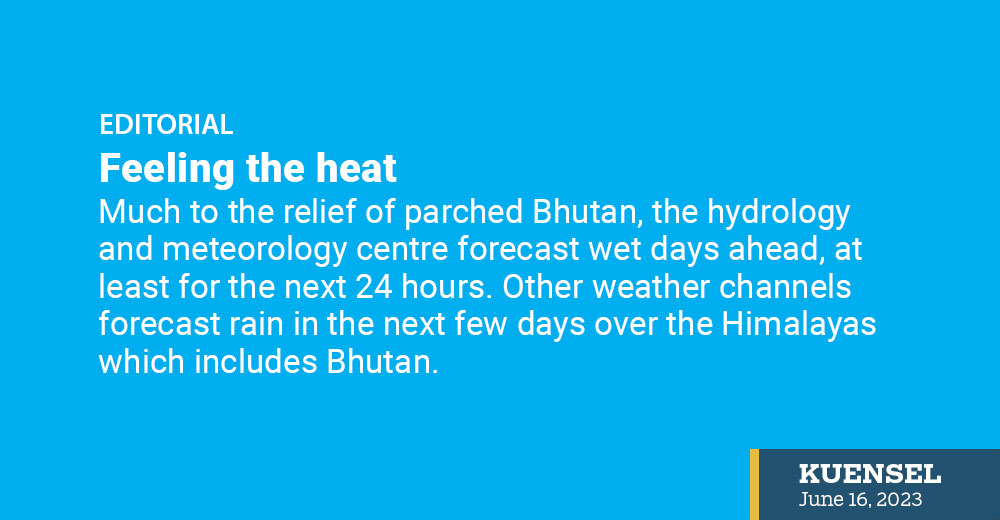Much to the relief of parched Bhutan, the hydrology and meteorology centre forecast wet days ahead, at least for the next 24 hours. Other weather channels forecast rain in the next few days over the Himalayas which includes Bhutan.
Monsoon this year was delayed by more than a week. A delayed monsoon means panic among those reliant on rain. Farmers across the country had been appeasing deities for rain. They know authorities are helpless. When it is not raining, they find excuses to blame – whether it is pollution of lakes, and streams, or burning garbage that defiles gods. The reality is that weather patterns are changing and there are consequences.
For more than a month, there was an acute shortage of water both for drinking and irrigation. It was attributed to the drying sources of water. Our memories change with the seasons. In March and April, we were talking about a wet and cold spring this year. Many were quick to conclude that it was the coldest and the wettest spring in recent years. The rain stopped.
The rain is back, we hope it will stay. But then it brings problems with it. Roads will be blocked if not eroded away. Trash hidden in the drains will be flushed out to expose our habits and waste management initiatives. It will wash away or overwhelm our water sources. Quite often, like in many parts of the capital, residents see rain, but no water to drink.
Located in the Himalayas and closer to the vast source of fresh water, we should be better off when it comes to water. We should be the last to experience a shortage if there is a global water crisis. Ironically, our shortages are worse than countries that import drinking water.
We have enough water. The problem, as many say, is not being able to tap or ensure equitable distribution. In growing urban places like Thimphu, we see one group complaining of shortage wishing their neighbours’ overflowing tanks and wastage could be diverted to their homes.
If the rain continues, farmers will manage to complete their paddy transplantation or vegetable farming. Good hydrology means our water sources will be replenished and we will have enough to see through the wet season. What happens after that is not even in the plans. We will see the cycle repeat – farmers will seek divine intervention for rain or to stop it, and residents will complain or blame authorities.
Not many, including planners and policymakers, think of the long term. Those with power and resources will take their pipes a few meters above others to ensure continuity. The powerless will have to wish and pray for water while they feel the heat.


